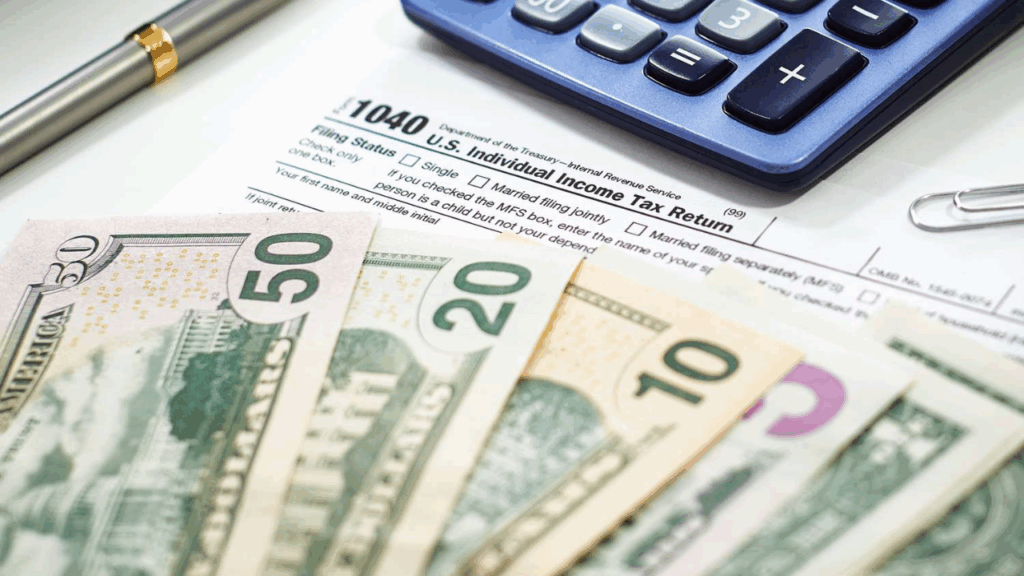The opportunity to claim the $1,400 third-round stimulus check formally known as the Recovery Rebate Credit for Tax Year 2021 officially ended on May 17, 2025. Millions of eligible Americans had until this deadline to file their 2021 federal income tax return and receive the payment. Now that the deadline has passed, many may wonder if they’ve lost their chance and what options, if any, remain.
What Was the $1,400 Recovery Rebate Credit?
The $1,400 payment was part of the third round of Economic Impact Payments (EIP3), authorized by the American Rescue Plan Act of 2021. While the IRS issued these payments automatically to most Americans in 2021, some individuals did not receive them due to missing or delayed tax filings. These individuals had the chance to claim the amount as a credit on their 2021 tax return.
The official IRS portal explains:
“If you didn’t receive the full amount of the third Economic Impact Payment, you may be eligible to claim the 2021 Recovery Rebate Credit.
Why May 17, 2025, Was the Final Deadline
The IRS allows taxpayers three years from the original filing deadline to submit a return and claim any refund due. Since the 2021 tax return was originally due on April 18, 2022, the three-year window closed on May 17, 2025, because April 15, 2025, fell on a weekend followed by a holiday in Washington, D.C.
Once this deadline passed, any unclaimed money reverted to the U.S. Treasury meaning that eligible individuals who didn’t file by May 17 have permanently lost access to the $1,400 credit.

IRS Took Action to Help Millions Before the Deadline
Recognizing that many people may have been eligible but unaware of their status, the IRS took proactive steps. In December 2024 and January 2025, the IRS began issuing automatic payments to around 1 million taxpayers who:
- Filed their 2021 tax return on time,
- But left the Recovery Rebate Credit line blank or entered $0,
- And were determined to be eligible based on income and filing status.
This group received the $1,400 payments automatically without needing to amend their returns.
According to IRS Commissioner Danny Werfel:
“We’ve identified individuals who were due the credit but didn’t claim it. We’re correcting that and sending them their money.
Who Missed Out?
Unfortunately, anyone who:
- Didn’t receive the EIP3 in 2021 and
- Didn’t file a 2021 federal tax return by May 17, 2025
has now forfeited their eligibility to claim the $1,400 stimulus. This includes individuals with little to no income who weren’t required to file but were still eligible for the credit. Non-filers were among the most vulnerable groups at risk of missing out.
If you fall into this category, there is no longer a way to claim the payment.
Common Scenarios Where People Missed the Check
- Non-filers with low income – Especially older adults or individuals on disability who didn’t file taxes.
- People who changed addresses or bank accounts – And therefore didn’t receive the payment.
- College students or dependents – Who were no longer claimed by parents but hadn’t filed for themselves.
- Recent immigrants or citizens – Who arrived after the IRS completed most stimulus distributions.
How to Check If You Received the EIP3
If you’re unsure whether you got the $1,400 payment in 2021, the IRS recommends checking your IRS Online Account or referring to Letter 6475, which was sent to recipients in early 2022.
Check here: IRS Online Account
This letter outlines how much you received and whether any amount is still owed.
Can You Still Get Any Other Tax Credits?
Yes. While the Recovery Rebate Credit for 2021 is no longer claimable, there are other refundable credits that you can still claim if you’re filing for 2022 or 2023 taxes, such as:
- Earned Income Tax Credit (EITC)
- Child Tax Credit (CTC)
- American Opportunity Credit (AOC) for education
Final Thought
The May 17, 2025 deadline was final. There are no extensions, and the IRS has confirmed that unclaimed Recovery Rebate Credit funds from 2021 will not be reissued.
If you missed out, the best action now is to:
- Review your IRS tax account history,
- File your current taxes properly, and
- Stay informed about any future relief efforts or refund windows that might open up for other credits.





